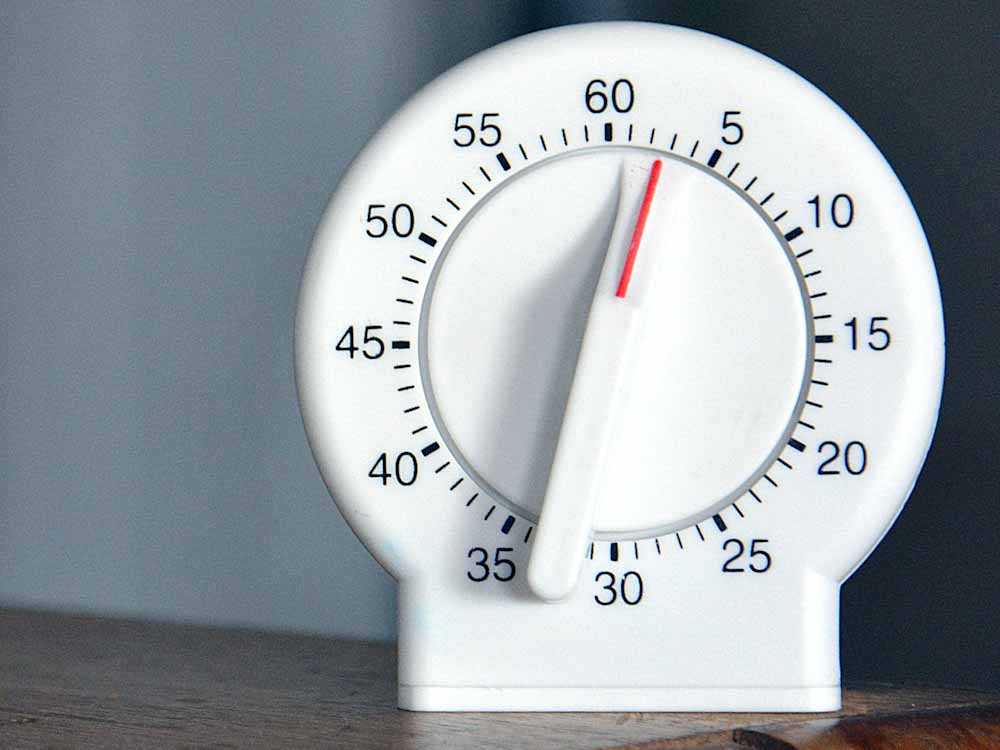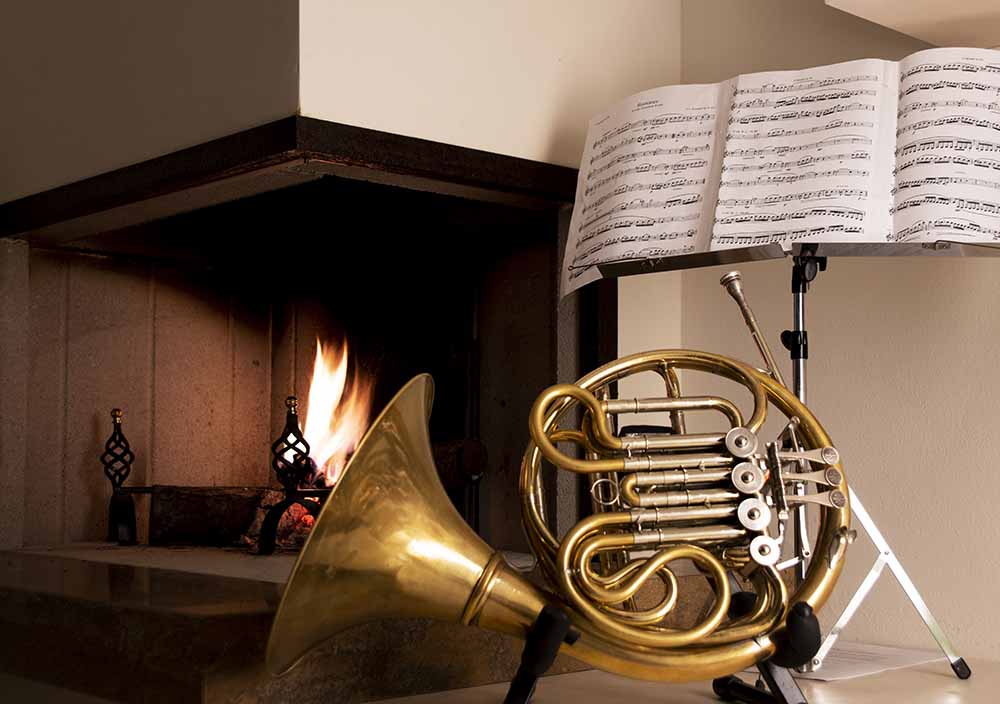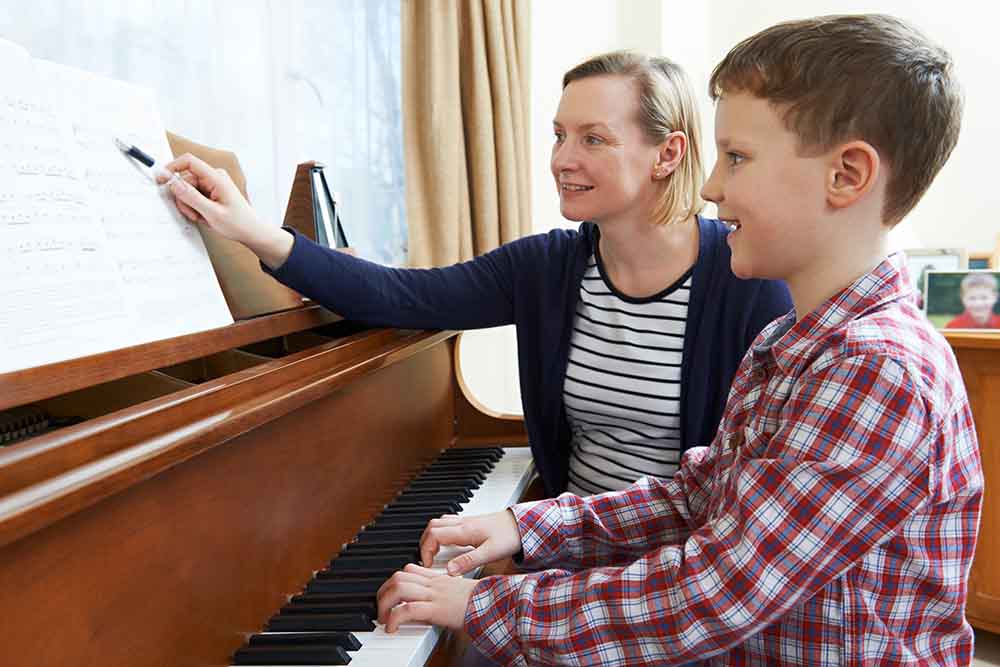
We may receive commissions from purchases made through links in this post, at no additional cost to you.
Remember the time your kid came home to tell you they wanted to learn an instrument? They were super excited and may have even begged you to let them try. You may have even had special conversations with your kid about the need to practice. If you were going to spend all this money on an instrument, they need to practice every day, even when don’t feel like it.
And while your child promised they’d practice every day, here we are. The honeymoon period is over. Now they don’t feel like it, and music has become a chore. Try as you may to gently encourage *cough – have a shouting match – cough* but it’s just not working. Music has now become a point of contention between you and your child. Something’s gotta change.
The Unpleasant Reality Of Practicing
This might not be surprising, but learning a musical instrument is hard work. One of the best long-term benefits of having a child play a musical instrument is that they learn discipline. The real challenge of learning a musical instrument is learning to be disciplined with their practice.
Learning discipline is hard work. It is a skill that needs to be developed. It doesn’t just magically happen. We need to practice discipline to learn to be disciplined (I think I just overused the word discipline…). Music gives us a vehicle to learn said skill, but we must learn to trick our brains into doing what we ought to, even when we don’t feel like it.
Motivation is temporary. Discipline is long-term. What we’re looking to do is create a habit in our kids’ lives. We need to develop a pattern where something like practice becomes a part of their daily routine. We can use short-term motivational tricks to help create discipline patterns.
This article is originally from www.dadstuffsite.com
This article is originally from www.dadstuffsite.com
The other major challenge (but a great lesson) we learn from music is delayed gratification. A new piece of music or song is going to sound its worst in the beginning. It’s going to take some time to make it sound its best. This gets even more challenging when you’re just starting and everything sounds bad. That song might take a day or months to sound good.
Related: What is a Metronome and Which One is Best? (Pros and Cons)
20 Tips to Help Motivate Your Kid to Practice Music
One major complication when giving tips for motivation and discipline is that not all kids are the same (I know brilliant insights, right? I have a doctorate.). Some of the tips below may work great for one child, and then not so much for others. For example, one of my kids took a simple reward system and twisted it in a way that defeats the whole purpose. You add the complication of what we’re just starting to learn about neurodivergence, and things get really complicated.
The key is, take what you want from this list, and leave the stuff that doesn’t work. Tweak it to fit the needs of your kid. No bullet point is gospel. They’re ideas to help you get started with your own situation.
1. Musical games
Gamifying practice is a great way to add some external motivation to what may feel like monotonous repetition. Playing through a passage of music three times without mistakes might not feel super exciting for a kid. But if we can add some sort of game element to it, suddenly we add immediate purpose.
Some general elements to consider when creating games include points, badges, leaderboards, performance graphs, avatars, and stories. You can even combine elements.
For example, you can create a cutout avatar of your child (as some sort of a superhero holding their instrument). If they need to play through a specific passage three times without any mistakes, that can translate to a narrative where your kid’s avatar needs to defeat three zombies. Each successful performance of a passage means defeating one zombie. If you need them to do it three times in a row and they make a mistake, then that zombie gets brought back to life.
Create a leaderboard to show how many zombies they’ve defeated. You can also count life points when they can destroy three zombies without regenerating. This can unleash certain superpowers (think of Mario getting a star) where they only have to do two repetitions until they lose their streak. After destroying a certain number of zombies, you can collect badges. Finishing a method book could mean leveling up and adding cool gear to their avatar. (By the way, gamifying also works for getting your child to clean their room.)
You can be as simple or as intricate as you want to be (you by no means have to be as extra as the example above). Just make it fun for your kid!
2. Go to live performances
A great way to get motivated is to watch someone great in action. This could mean going to a local symphony orchestra, a college ensemble or faculty recital, or a high school ensemble performance. Whoever you choose, make sure it’s someone at a higher level than your child is currently at.

If you’re unable to go to a performance, you always have YouTube. You can see some of the best performers in the world for free. Ask your child’s teacher for a couple of recommendations for musicians to check out.
While YouTube is great, go to the live performance whenever you can. There’s something different about the energy of experiencing music live. The inspiration of seeing and hearing someone in person is often better than seeing the best of the best on YouTube.
Related: Renting vs Buying a Beginner Instrument: Advice from a Pro
3. Rewards system
I know, this can often feel like bribery, but it doesn’t have to be. It’s all about dangling that carrot in front of your child. There are lots of ways to make a rewards system, from practice charts to painting beans that can be cashed in for rewards. You can even dust off the old poker chips you haven’t used in years.
Whatever you choose (and there are lots of options on the internet), use something physical like a small whiteboard your kids can check off or a piece of paper hung on the refrigerator. The idea is to have something tangible to replace the abstract goals of practicing.
When it comes to picking rewards, balance the size of the rewards and how many days it takes to earn a reward. For example, if you’re doing a practice chart, one prize can be an ice cream party (which really just means we all get ice cream for dessert) for practicing 5 days in a row. Or 10 minutes extra tech time if they practice 4 days in a row. You can go bigger and make it a trip to an amusement park if they practice every day for 3 weeks. (Music is enough of a long-term/delayed gratification activity that you don’t want to do the big ones too often.)
Start short in the beginning to give your kids a couple of wins. Once they get a taste for the rewards, they’re more likely to get excited about winning the next reward. Before you know it, they’re doing the 100 Days of Practice Challenge.
This article is originally from www.dadstuffsite.com
4. Break practice into smaller bits
This is especially helpful when your child gets past the initial beginner year and their practice sessions get longer. Sometimes the number of different things they need to practice can feel overwhelming. Consider doing scales and fundamental work in the morning, and then working on solos or etudes in the afternoon. This way they feel halfway done when they begin practicing later in the day.
Splitting up practice is beneficial for retention. Generally, it is better to practice shorter repetitions spread out over a longer period of time. By playing your instrument, doing something different, and then picking it up again, you strengthen neural pathways that ultimately help with muscle memory.
Check out this Ted Talk video about effective practice (it’s short and surprisingly accessible for a potentially complex topic):
5. Make a practice plan
It helps to turn an abstract direction like, “Go practice,” into something specific and tangible. Often, many young musicians don’t know how to practice. Talk to your private lesson teacher or band/orchestra director about what they should be working on. There should be a balance of fundamental exercises (things that help them get better at specific elements of their instrument) and music (in the beginning, it will be some simple songs).
The thing you want your child to avoid is just playing through their music. Playing through it once is not the same as practicing. Make a list of different things to practice and be specific. Have a section for scales, exercises, and then music. Write how many times they need to go through each exercise and/or scale (without mistakes), before moving on to their music.
Related: 9 Reasons Your Child Should Practice with a Metronome
When it comes to working on music, break it up into smaller sections. Today’s practice session may only include 1 or 2 sections and working on them until you can play them without any mistakes. Tomorrow you can review that section, work on the next section or two, and then practice putting them together.

End with a review of something they’ve worked on already. It’s always good to end on something fun that your child can be successful with. This is also a good time to make an impromptu recital. Have your child play something they’ve been working on or maybe their favorite song for you. Remember the goal is to make music fun, not something that’s always hard work.
6. Let them have ownership of their practice
Children are so often told what to do it’s not surprising they get fatigued and start to push back. Let them take ownership of their practice. Work with them to figure out the order, number of repetitions, and what parts of their solo/etude they need to work on (as long as we’re doing what needs to be done. Some kids are stinkers and use this as an opportunity to get by doing the minimum).
This has the added benefit of helping them become independent practicers (which is the ultimate goal). Encourage them to find the portions of music they struggle with the most and to work on those. Remind them that they don’t get better by playing the parts of a song they can do well. They need to work on the parts they stink at and make them good.
7. Try different times of the day
Sometimes kids (and adults), get stuck in a rut. It’s not uncommon to get fatigued by the repetition of the same schedule every day. Not to mention kids seem to have so many more activities than I remember having.
After-school time seems to be getting shorter and shorter. It’s not easy to sit in school all day only to come home and go to soccer practice, then homework, and then practice. Try putting part of the practice routine in the morning. This way when they have to practice after school, they’re halfway done.
8. Use a timer
This was a trick our private lesson teacher suggested that works great for our ADHD son. It gives a sense of urgency to someone who struggles with time blindness. It also gives some parameters without having to keep count of how long you’ve worked on something. Just set a timer, and keep working on it until the timer goes off, and then move to the next section.

This is also a helpful trick for someone who tends to be a perfectionist and struggles to move on unless they get it just right. This forces them to move to a different part of their practice and not get stuck in one section.
9. Schedule performances/recitals
If your child is signed up for private lessons, they may need to perform in a studio recital once or twice a year. This is where every one of a teacher’s students performs a piece for each other and their family. This is a great way to give a sense of urgency to a child’s practice (without freaking them out of course) while only having to perform a short piece of music.
While your child might get nervous, this is a great experience for them to learn how to perform in front of people. It also takes the abstract idea of getting better at their instrument and gives a tangible goal. The sense of accomplishment a musician gets from performing is like nothing else. This is one of the biggest motivations for learning an instrument: to be able to perform for people. Without performance opportunities, music becomes an abstract concept. We need something to practice for, to give a goal for practice.
10. Give impromptu performances
It might be a while until the next big performance. So let’s make an impromptu recital at the end of their practice session. It could be something as simple as a review of an old tune. Parents need to be their kid’s biggest cheerleaders. This is a great way to give them lots of encouragement.
You can also use an impromptu performance to give them a goal for a piece they’re working on. Some kids work better when there’s a little pressure. If they don’t have to learn a piece until a performance in a month or for their lesson in a week, it can be hard to feel a sense of urgency. Having to work on a passage to perform for the family is a way to give some low-stakes pressure.
This article is originally from www.dadstuffsite.com
11. Make practice goals
Many kids often fall into one of two camps when they need to learn something new. Either they feel overwhelmed and think it’s too hard, or there isn’t enough sense of urgency, so they put it off. The solution to either situation is the same. Make specific, smaller goals.

Simply break a piece of music into smaller sections. Write out when you plan to work on each section and how well you expect to play it. If it’s a faster or more technical passage, set metronome goals. By breaking things up it will seem less intimidating and more manageable.
This also has the advantage of showing your kids’ progress. Because learning an instrument is a long-term process, it’s hard to see your progress. By writing goals, your child can see what they have accomplished.
Related: Parent’s Survival Guide to the Flute: Basic Care, Terms, and How to Help
12. Leave your kid’s instrument out
This is a simple hack that has better results than you think it should. It’s easier to pick up and play an instrument when it’s just there ready to play. Let’s be honest, taking out an instrument doesn’t take much effort. But when you don’t feel like practicing, that little bit of effort seems like a lot. Leaving the instrument out (on a proper stand, not just on the floor or desk) removes that barrier.

Also, having your child’s instrument easily available makes it more front of mind and more tempting to play. Kind of like how you weren’t particularly hungry until you saw that great-looking snack someone was eating. Suddenly you need to eat something.
13. Be engaged with your kids
This is a good parenting tip in general, but especially great for music. Talk to your kids about their favorite song/piece and why. What did they learn new in their lesson today? What do they like about playing their instrument?
DadStuff Tip: When you’re asking your child questions to engage in conversation, avoid yes/no questions. Get specific. When they inevitably give too short an answer, follow up with, “Tell me more.”
Many parents don’t know anything about music and are afraid to talk about it with their kids. Accept you don’t know much about music. Ask them to teach you something. Ask them what they think is hard about music. Remind them of the gift that is music. If you never had a chance to learn an instrument, share it with them (not to guilt them).
14. Encourage hard work, not talent
Recognize your child’s hard work and be specific. Don’t just tell them how good they are; tell them exactly what you like about what they played (I like to think of 2-3 specific things I liked whenever I hear someone perform). Remind your child that it’s a long-term process. Remind them of how far they have come and how hard a piece used to be (and now they’re crushing it).
If you have a child that picks up music quickly, don’t overly praise their natural talent. Praise the hard work. You don’t want to give praise for being naturally good. Eventually, they will reach the end of their natural talent and find that success takes work.
If a person receives praise only for their natural talent, they often feel like a failure when they cannot be successful right away. They’ve never been encouraged to work and have tied their self-worth to their natural ability. Meanwhile, students praised for their work regardless of their talent often succeed in the long term. They aren’t as discouraged if they struggle, knowing they’ll eventually get it with work.
Stanford Professor of Psychology Carol Dweck wrote about this in her book Mindset: The New Psychology of Success. If you don’t want to read the book, you can check out a Stanford University article about Dr. Dweck and her research here.
15. Find the right teacher
Finding the right teacher for your child can make all the difference in the world. You may not be able to change your child’s orchestra or band director, but you can change their private lesson teacher. In fact, if your child doesn’t particularly gel with the ensemble director, a compatible private lesson teacher can be the thing that keeps music enjoyable.

You want to find a teacher that knows how to push your child the right way for your child. You don’t necessarily want someone who is just fun and games all the time (although that might be helpful at first). You want someone who understands any learning challenges your child might have: someone that knows how to connect with your child.
16. Let them play the music they like
This is in addition to, not a replacement for what they should be practicing. Music should not always be work. It can be a coping mechanism that helps relieve the stresses of the day.
Let your child review/perform some of their favorite songs they’ve already learned. Sometimes this means finding a new song they’re excited to learn. Go online and buy the sheet music. For under $5, you will get a child super excited about learning their favorite song from their favorite movie (for my oldest, it was Carol of the Bells last Christmas).
17. Avoid negative comparisons
This might sound obvious, but as parents, sometimes we say stupid things. Once upon a time, I was a middle school band director. After a concert I overheard a parent talking to their child about how great a different kid was. About how impressed he was with this other child’s performance. Anything he said to his kid paled in comparison to the praise he heaped on someone else’s child.
Make a big deal over your kid. Even if they didn’t practice as much as you wanted them to. Even if you think you’re encouraging them by saying you can be as good as that other kid if you work hard (you don’t know the story of that other kid’s success. He might be natural or have parents that are professional musicians and started their instrument when he was 2.). You want your child to feel the excitement and receive the accolades from a performance. Not feel somehow diminished by someone else’s talent.
This article is originally from www.dadstuffsite.com
18. Change things up
Don’t get stuck in one reward system. For my family, we need to change the “no tech time until you practice” rule. While successful at first, it’s now turned into the box they need to check just to do tech time. Now they want to only do the minimum to get to what they really want to do. We all get in a rut and lose that dopamine hit when we get too used to one motivational technique.
Try something different, whether it’s a new time of day, a different reward system, or a new routine. If you have an older child and they’re serious about their practicing (and you’re okay with them using social media), create an Instagram practice account. The goal is to post something they’re working on regularly as accountability. Not only do they have to post something, but it needs to be good enough to show the world.
19. Don’t banish your kid the other side of the house
Value your child’s music. Even when it’s not very good (and you can bet there’s going to be some bad playing in the beginning). By sending them off to the other corner of the house, you imply you don’t want to hear it. Encourage it to be a part of the household.

Allow them to practice in their room, but also encourage them to practice in a common room in the house. While my kids are too young for me to know this first-hand, I have heard from many parents that they’ve come to miss hearing their kids practice when they leave for college. Soak it in while you can!
20. Use an older peer as a role model
Introduce your child to someone who plays the same instrument that is a little older. As I mentioned earlier, we want to avoid negative comparisons. But there’s something about having an older role model as an example.
Children respond differently to a peer, especially one that is a little older, than to an adult (particularly a parent). While being ahead of them talent-wise, they’re not so far along in the process of learning their instrument as your child. They can relate more closely to the challenges your child is facing. They can often show a different level of empathy and have suggestions based on how they overcame a similar challenge.
Related Posts
A while back, your child decided they want to learn a musical instrument. You may not know much about music, but they seemed eager, so you went with it. Their teacher gave you a laundry list of...
It’s a typical weekday morning and you are going through your child’s take-home folder. Along with the monthly lunch menu, you find a flyer about signing up for band or orchestra. That’s when...
